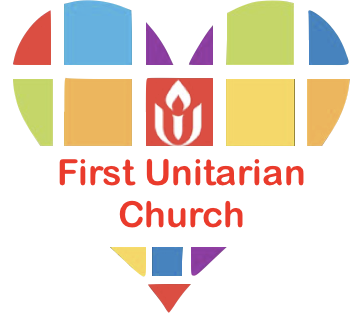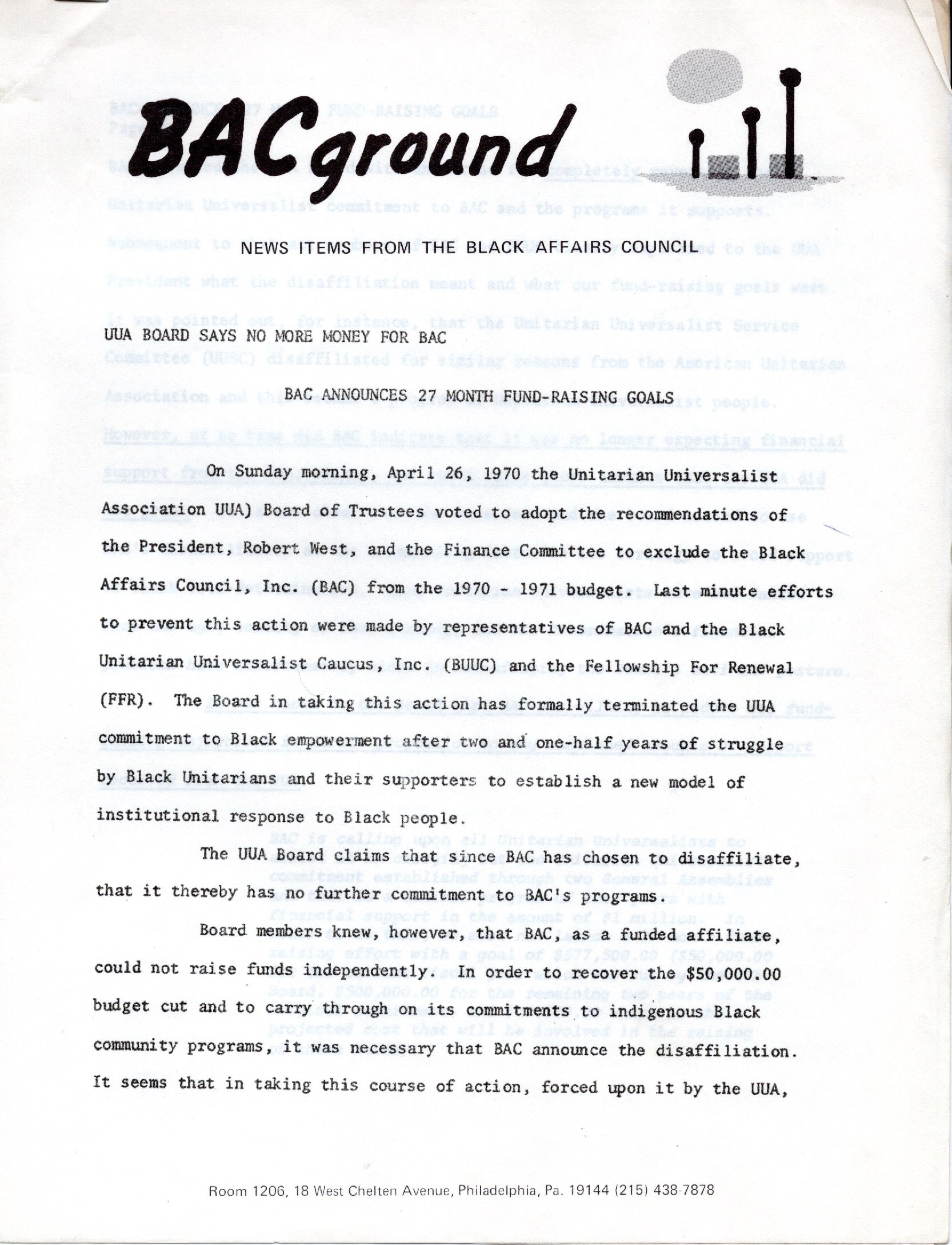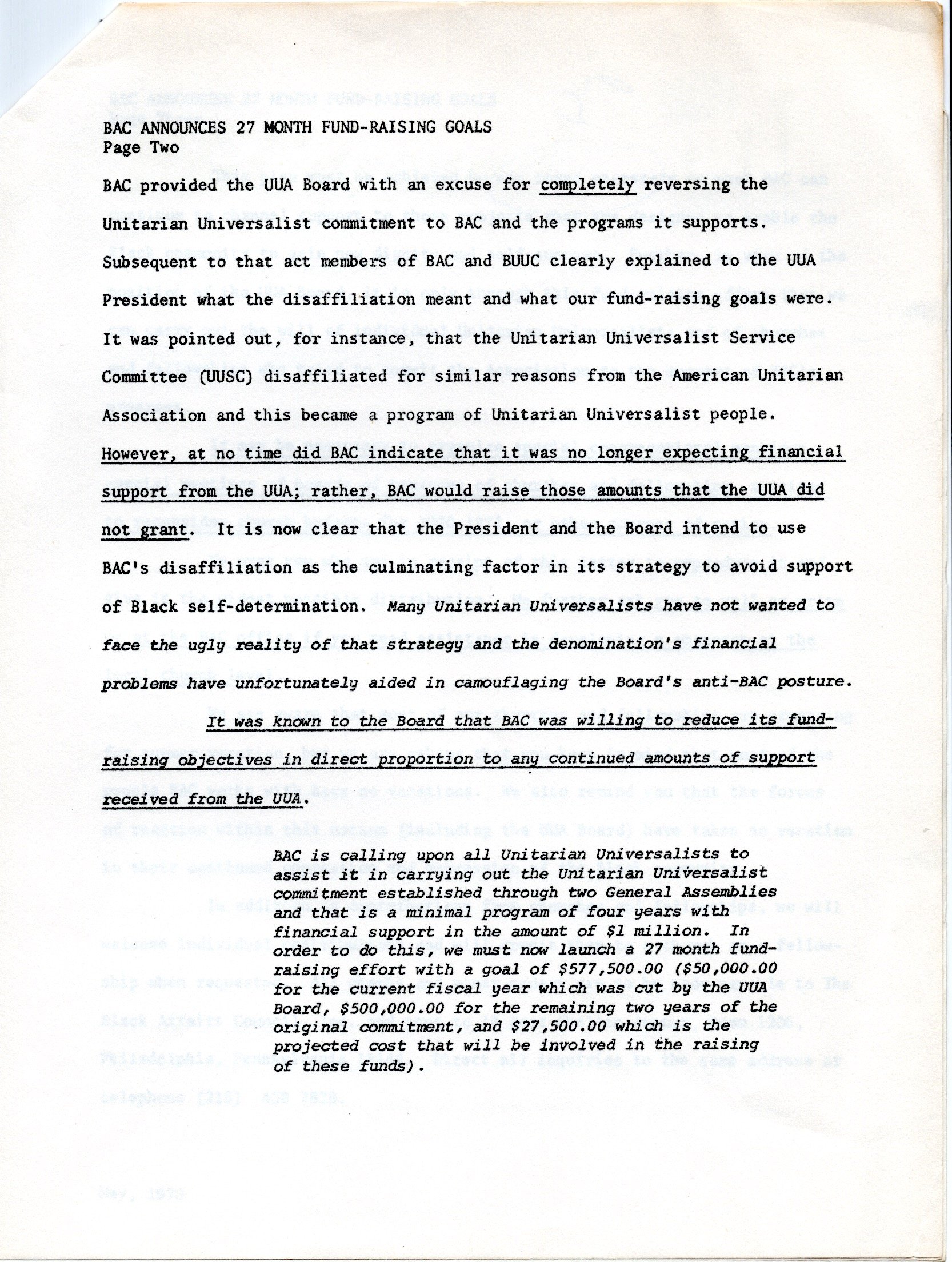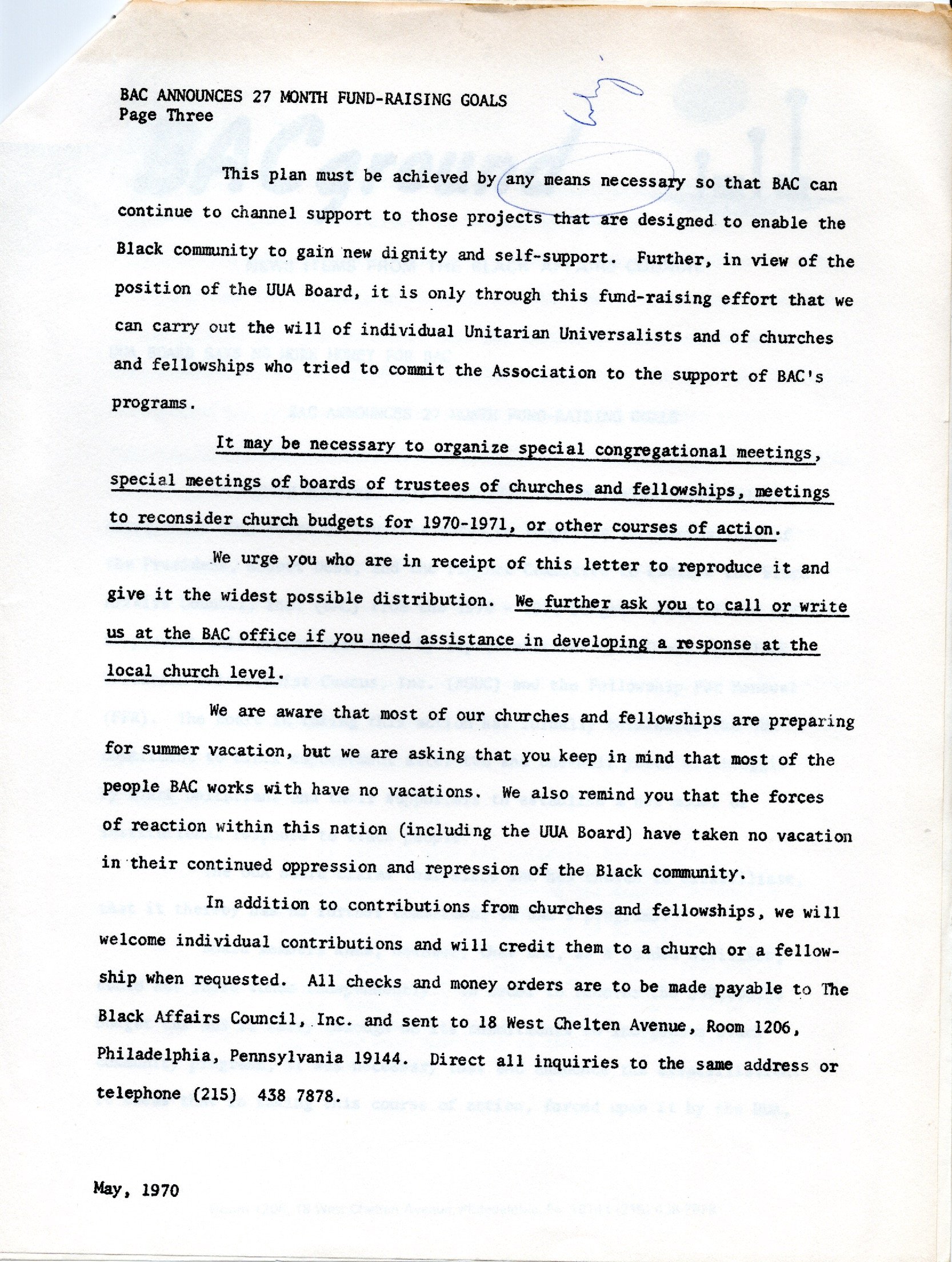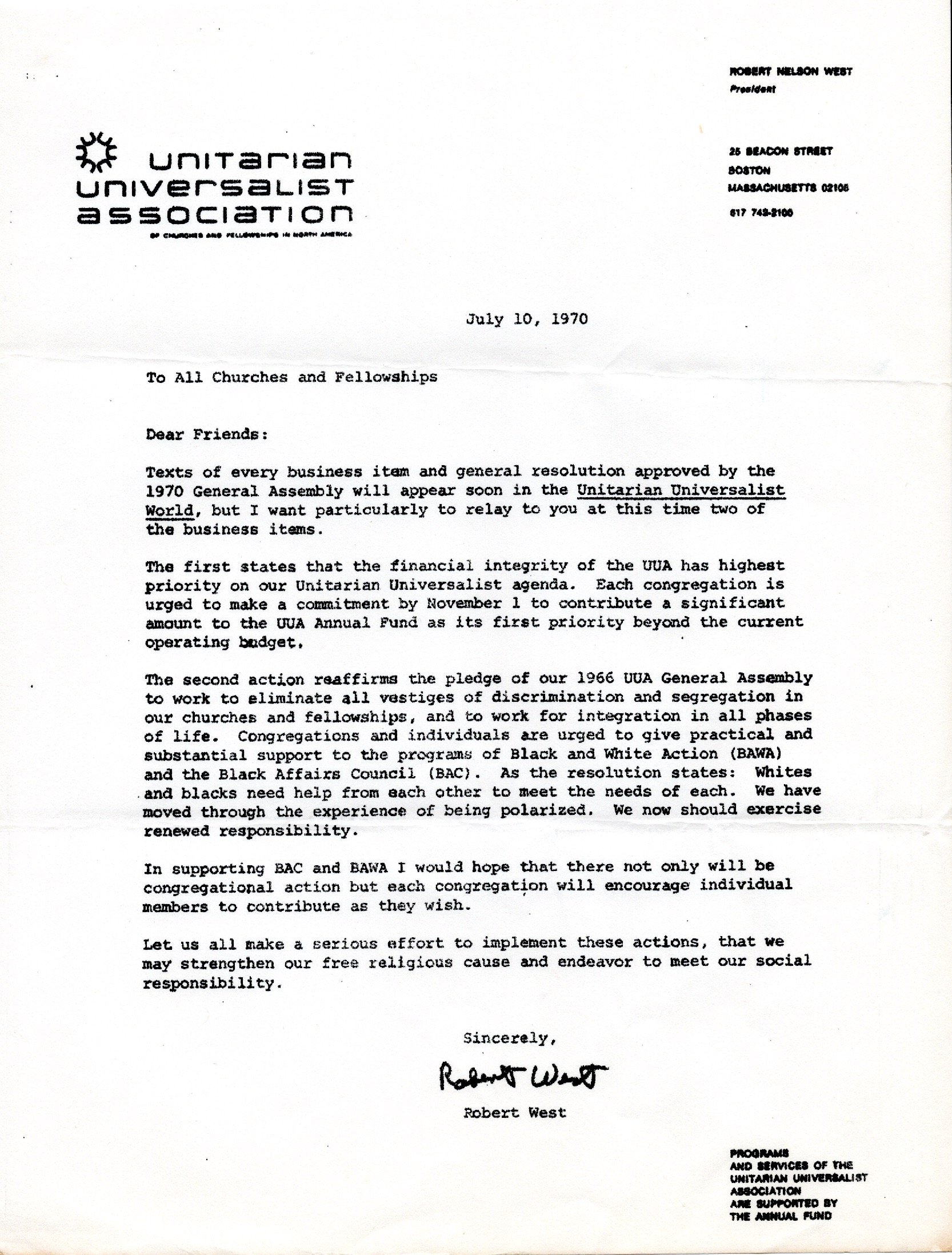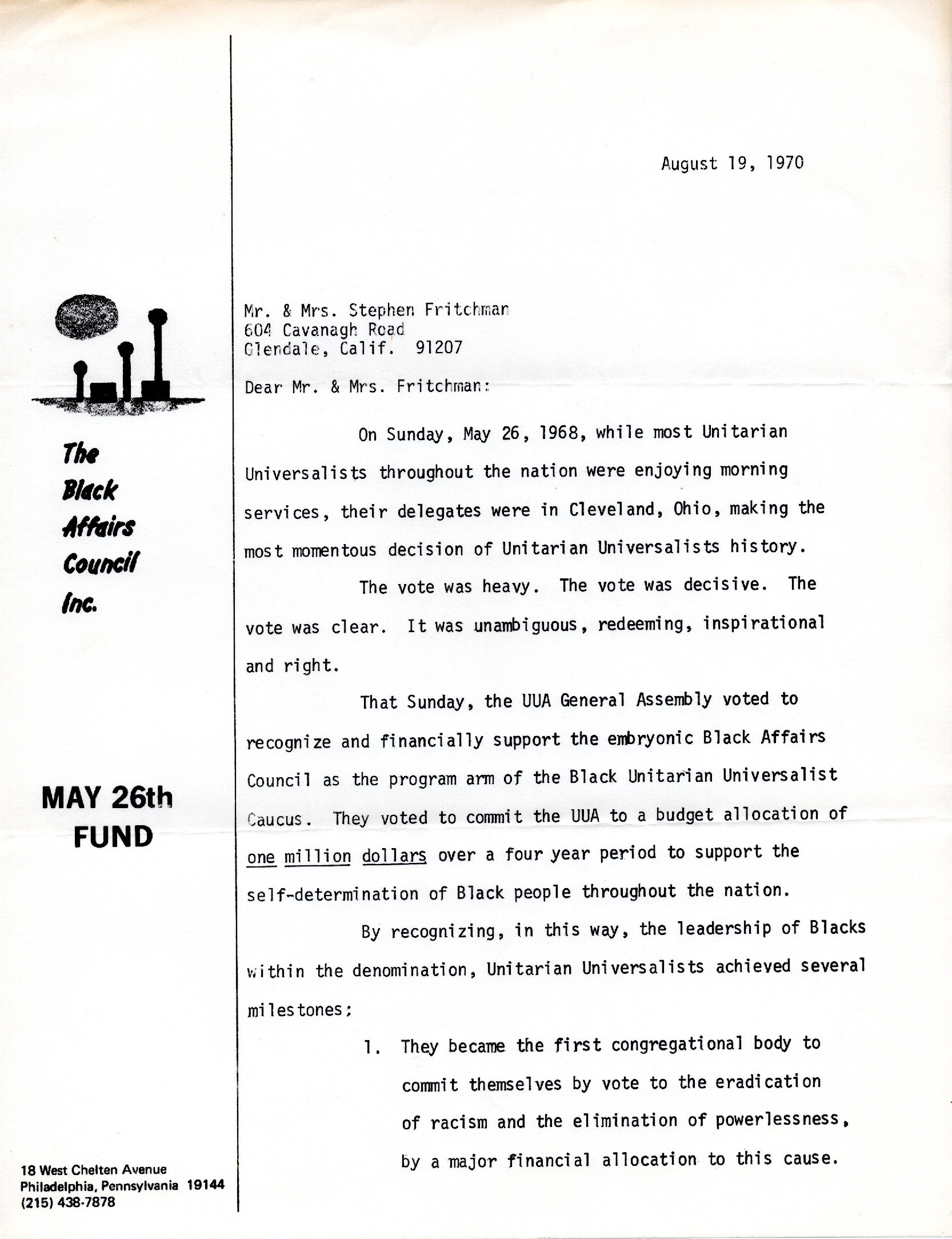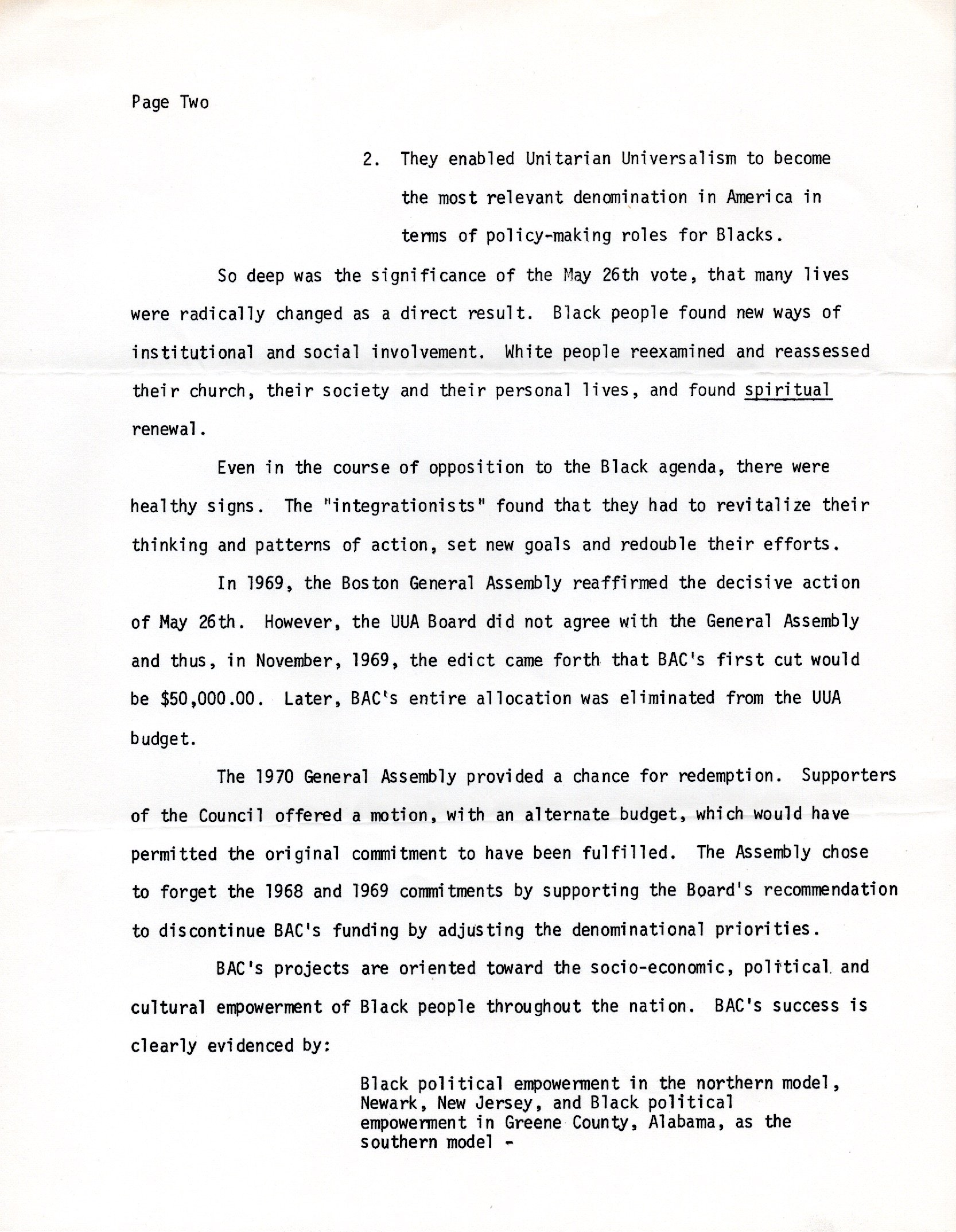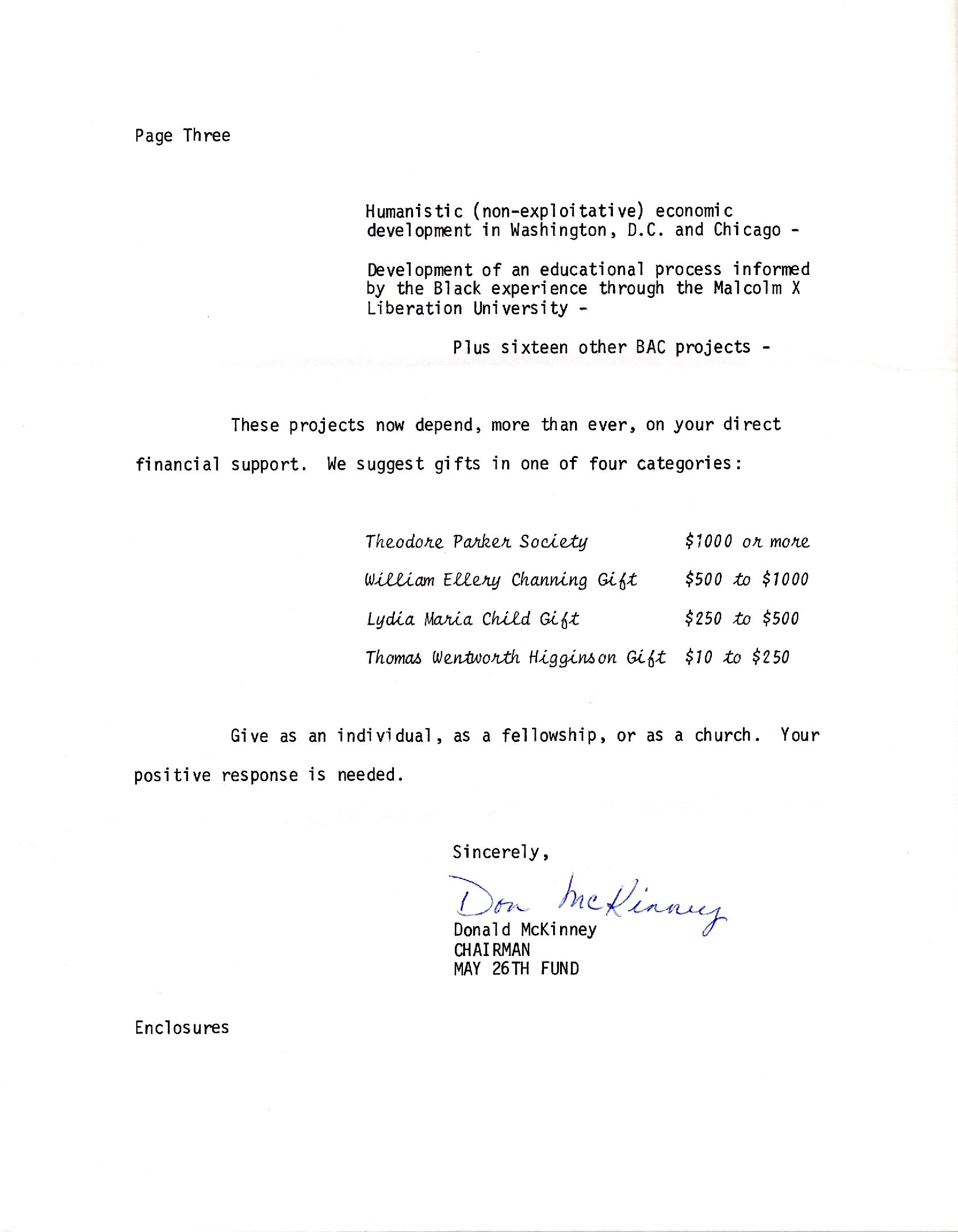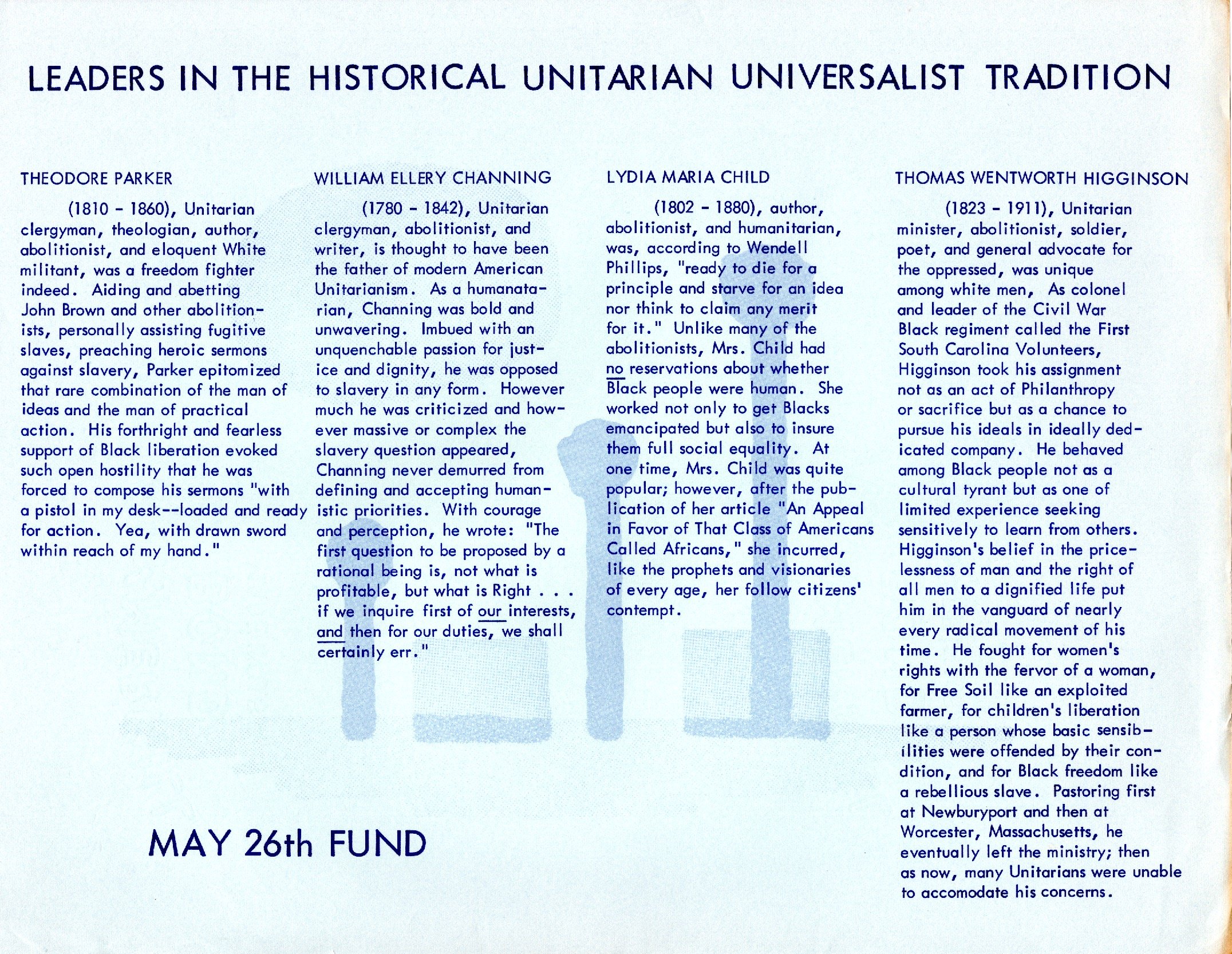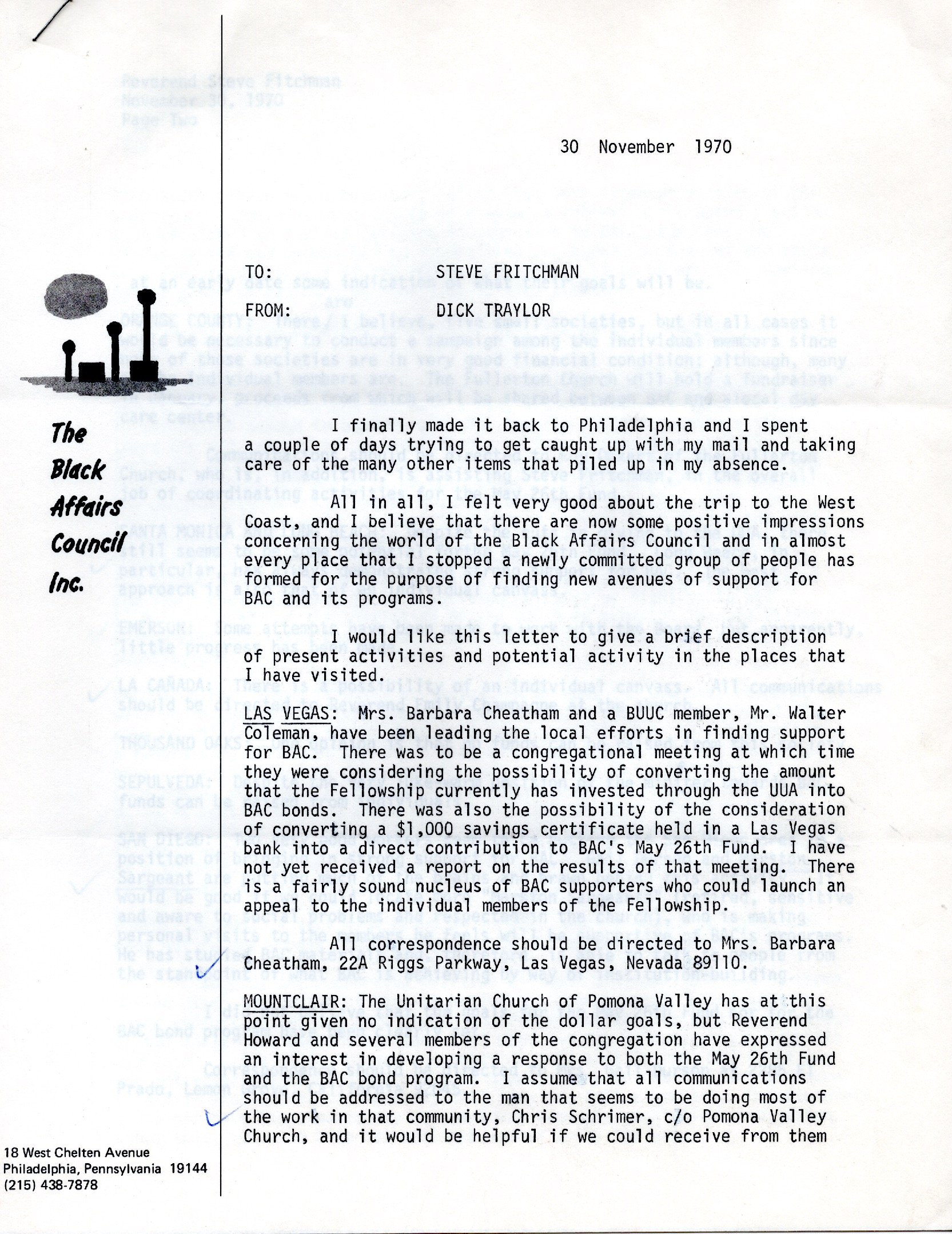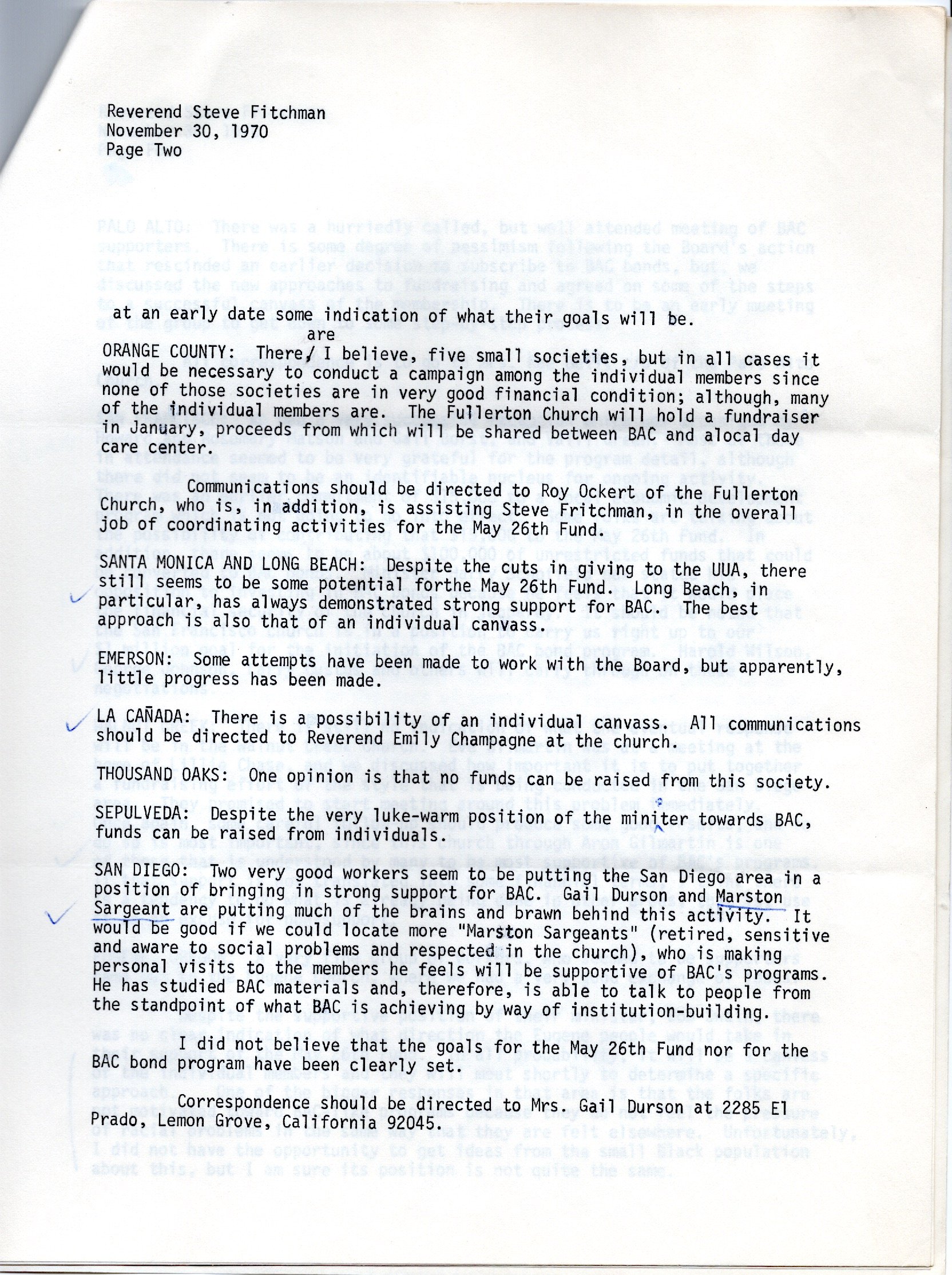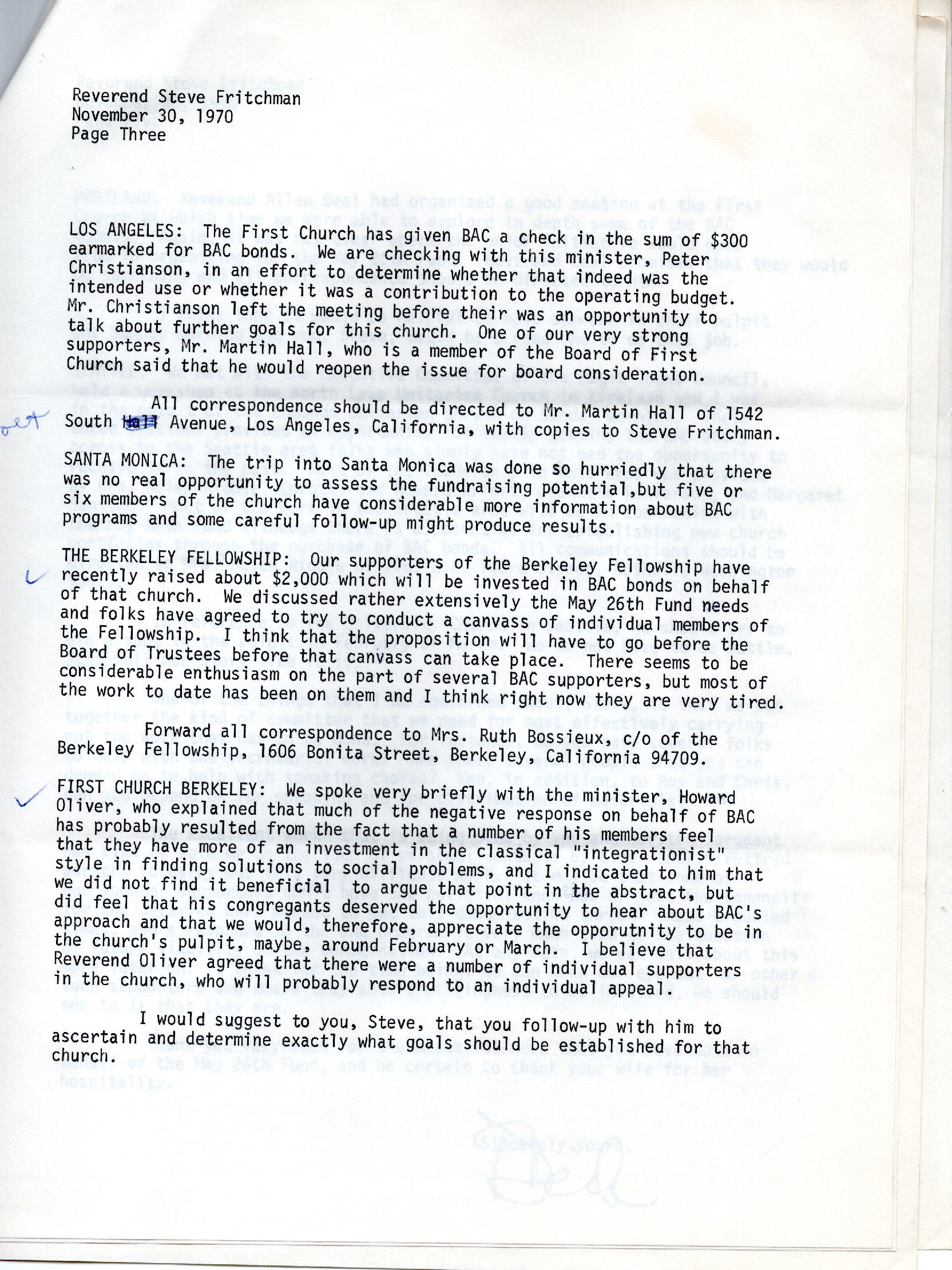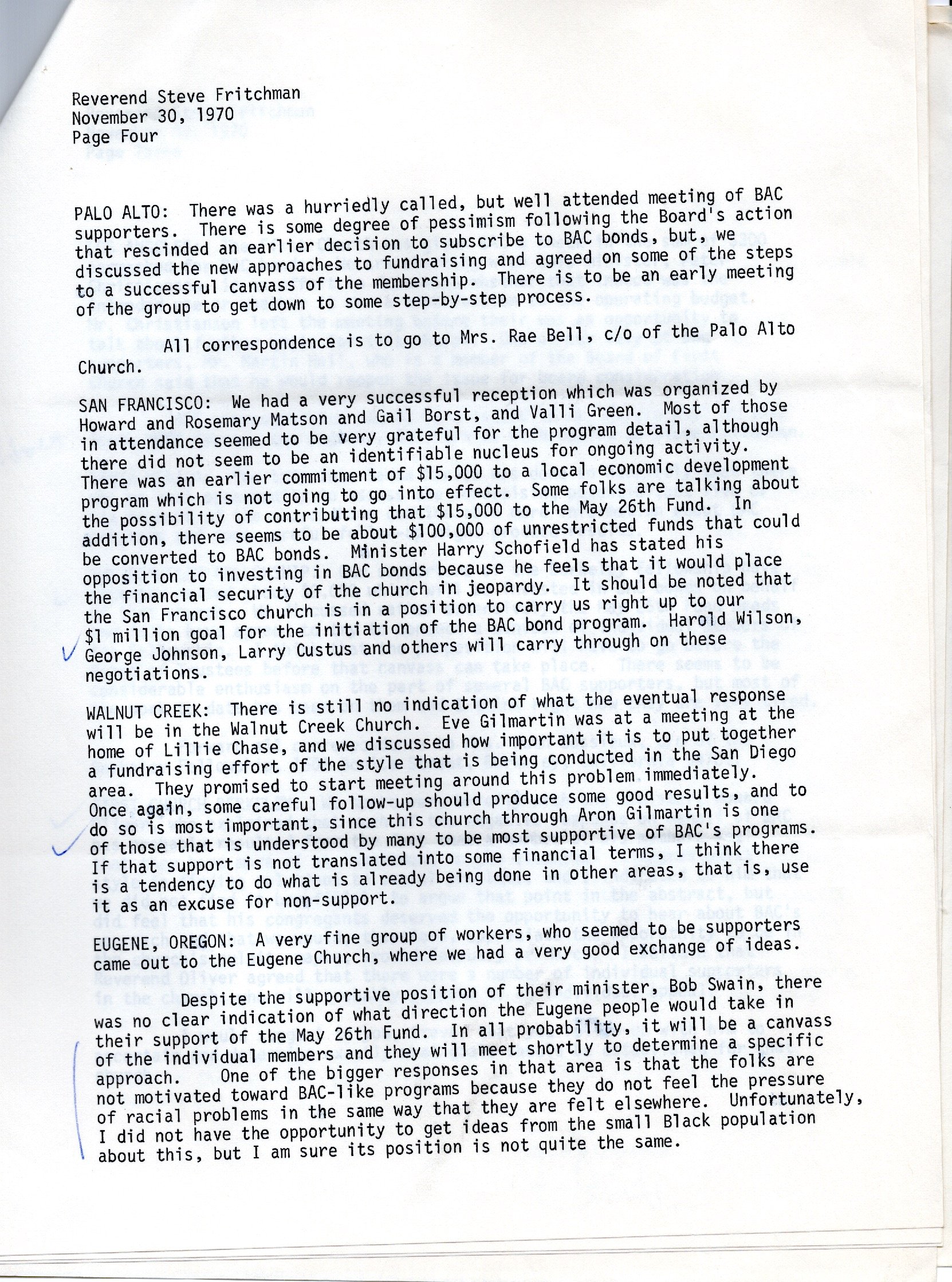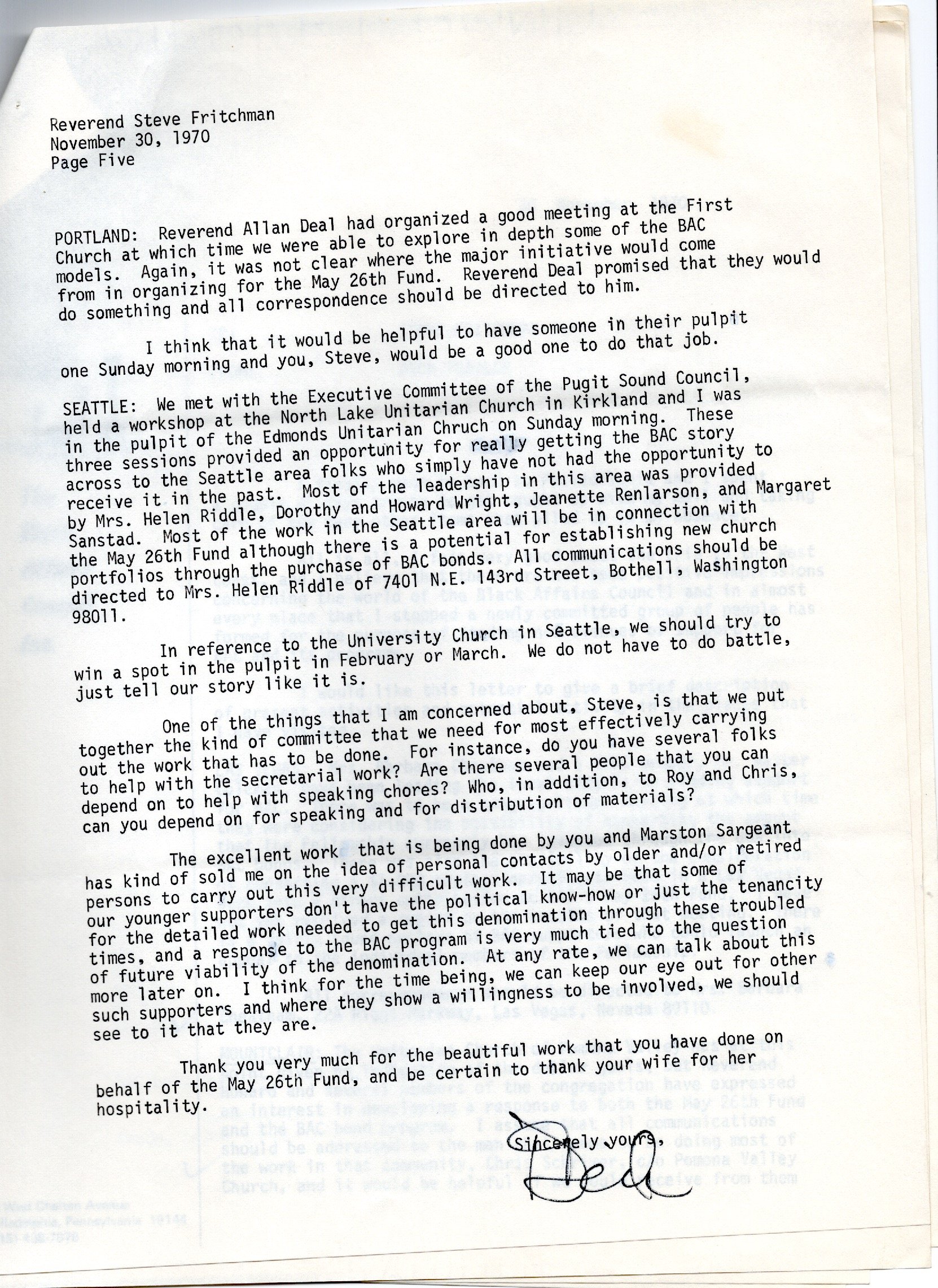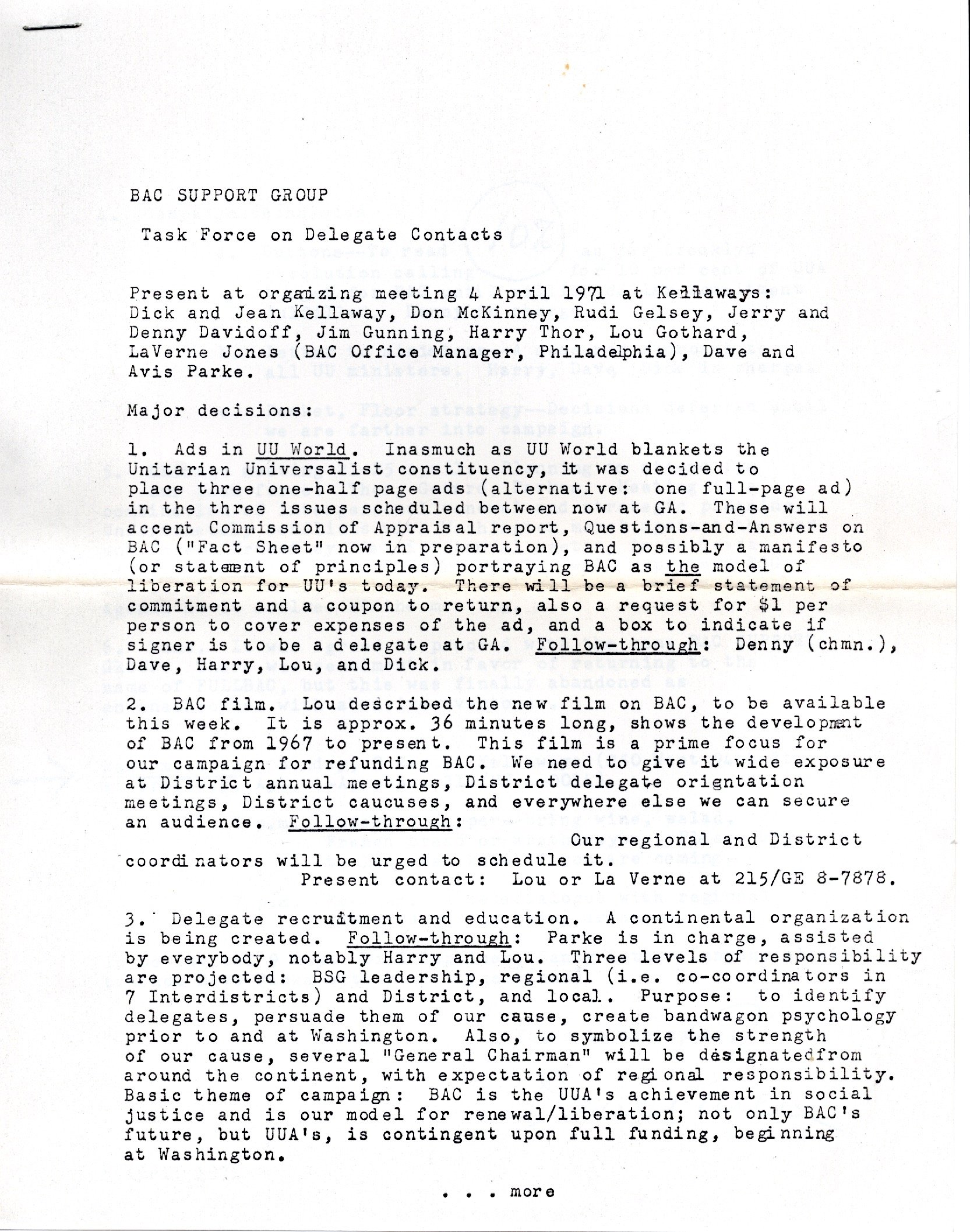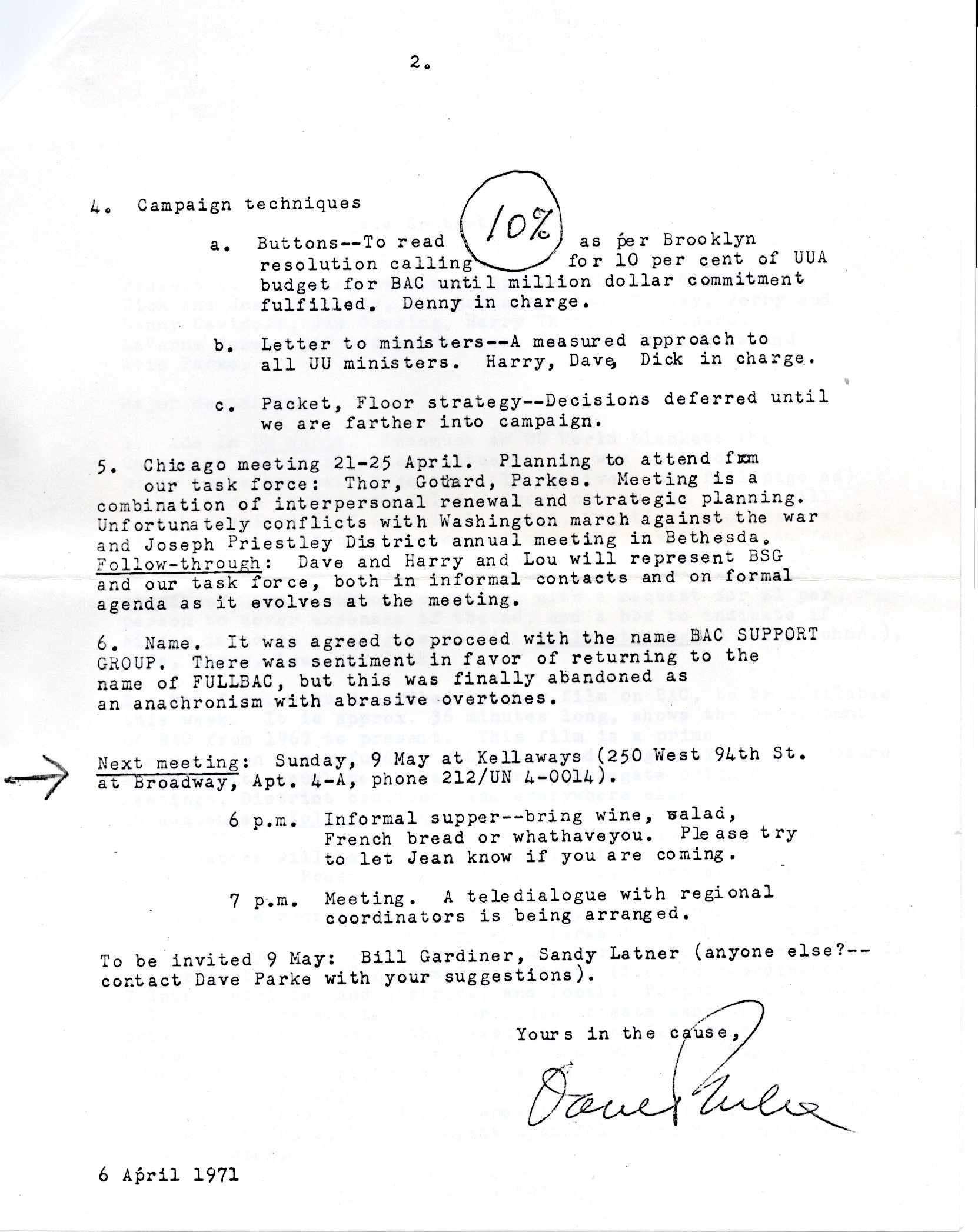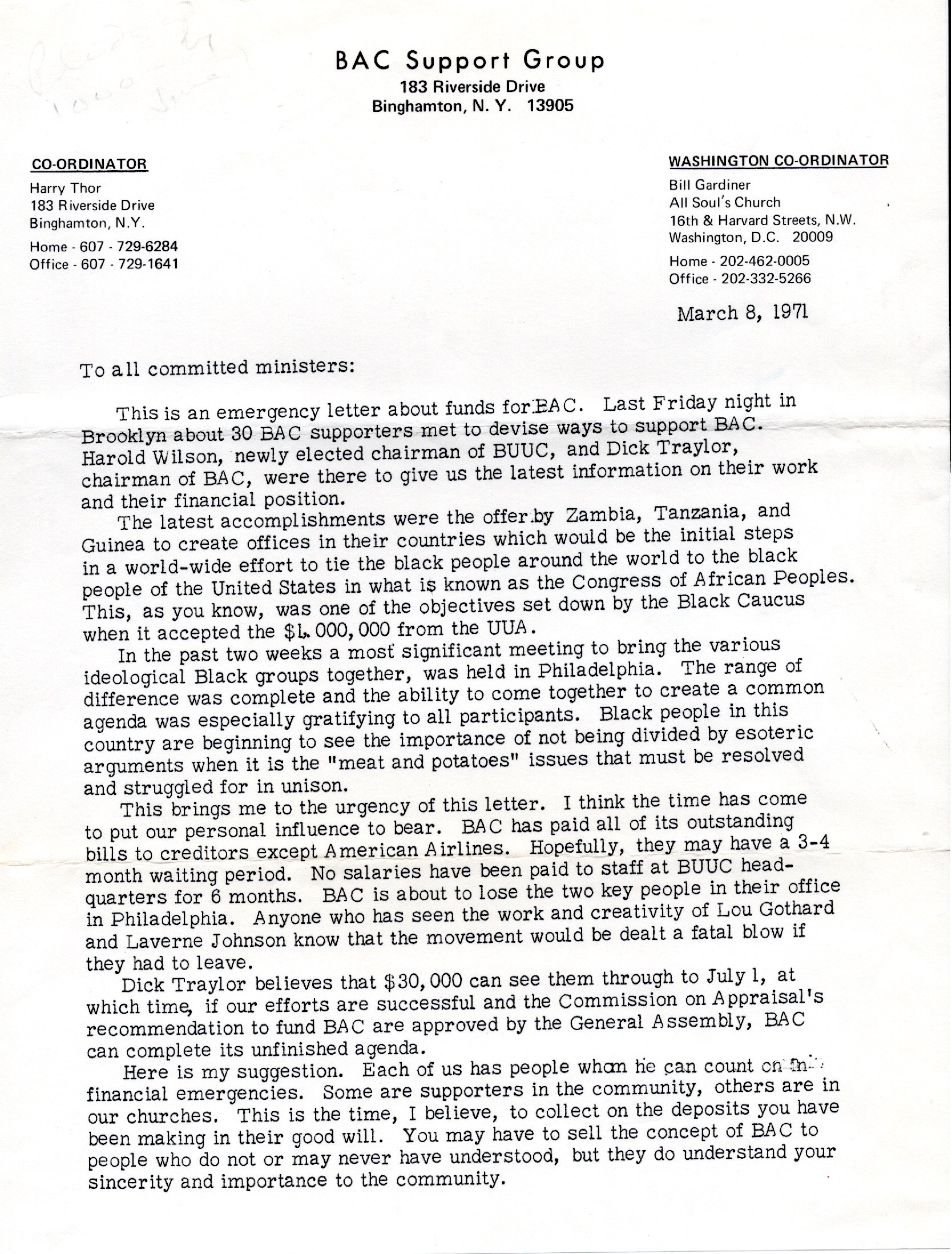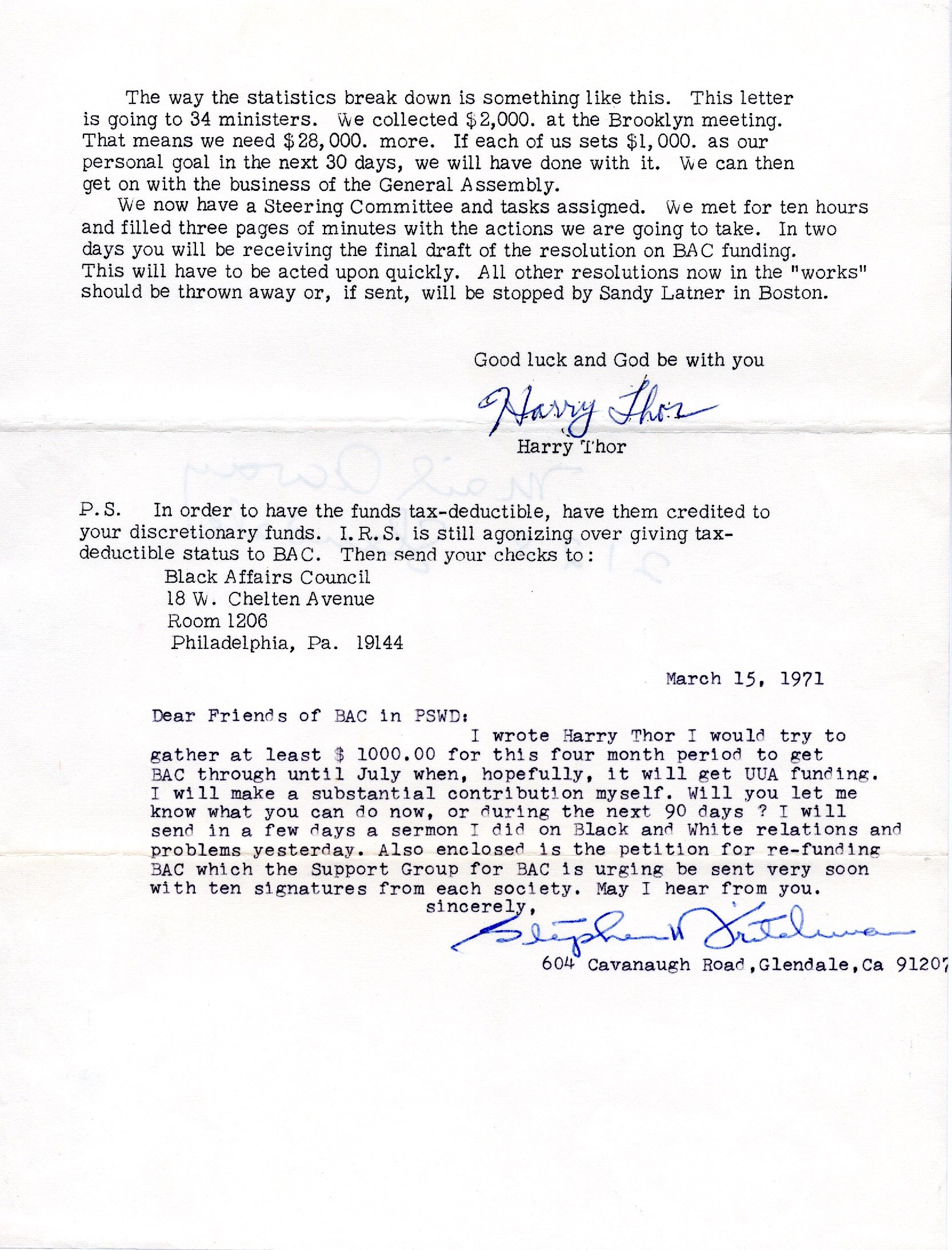1970
- General Assembly in Seattle -
On April 26, 1970 the UUA Board met to set the 1970-1971 budget and decided to adopt the recommendations of President West and exclude the BAC from the budget altogether. The Board claimed that since the BAC decided to disaffiliate from the UUA, the UUA had no further commitment to fund the BAC’s programs.
But the BAC saw it differently:
The 1970 General Assembly presented an opportunity to fund BAC at the levels promised to it at the two prior assemblies. BAC decided to boycott the 1970 GA in response to the Board’s reduction of the BAC allocation and failure to adhere to the budget recommendations made by delegates to the 1969 GA but nevertheless encouraged delegates to reject the Board’s budget and reinstate the promised $250,000 allocation originally promised to it in 1968. A motion to reinstate the funding was made at the 1970 GA but was defeated 399-462.
While the UUA did fund other racial equality initiatives at the 1970 GA, the removal of all funding to BAC stung. UUA Trustee Norma Poinsett who voted to fund BAC at the 1968 GA, said the following in an interview given decades later:
“There are so many interpretations as to why the denomination got cold feet at the Seattle GA [in 1970]. Some say it was financial problems; some say it was the issue about audit reports. I still believe that they really didn’t like the idea of black people deciding what to do with the money. The denomination felt that it was a ‘nice’ thing to do, maybe even the right thing to do [to support BAC], but they didn’t want to be inconvenienced by it.” She goes on to say, “I didn’t leave. I stayed on. I knew enough about the UUA to understand some of the frustrations, that everything moves so slowly, that you don’t change minds that fast. Anyway, I wasn’t a Unitarian Universalist because I thought they were nonracist. I was a member because of what the religion means to me.” Poinsett indicated that she feels vindicated for staying on since the UUA has committed itself to anti-racism efforts since then. “Yes, we still have far to go,” she says, “but everything is much fairer.”
Soon after the 1970 vote, President West sent a letter to all Churches and Fellowships encouraging them to contribute to directly the BAC and BAWA:
BAC Fundraising Begins in Earnest
The BAC ramped up its fundraising efforts in 1970, and sent out an announcement that it would set up a May 26 fund, to recognize the commitment the UUA made on May 26, 1968 to allocate $1 million to it over four years. One fundraising letter, sent soon after the conclusion of the 1970 GA, requests donations from individuals and churches and announces various gift categories named after famous Unitarian Universalists.
In November 1970, Richard Traylor went on a tour of West Coast churches to make a fundraising pitch and Fritchman was heavily involved in assisting with Traylor.
Traylor shared his packed schedule of appearances at West Coast churches with Fritchman:
At the end of the month, Traylor shared the following summary:
Supporters of BAC were also coming up with strategies to get BAC the funds it needed.
Early the following year, Fritchman followed up with West Coast churches with a simple questionnaire about support for BAC. The questionnaire asked about past and future contributions to BAC, whether the church would be willing to show a film about BAC, and, finally, whether the church would support funding for BAC at the 1971 General Assembly.
Some congregations answered positively:
Others returned the questionnaire with a single word answer to each query: “No” or “None.”
After Fritchman shared the survey results with Traylor, Traylor agreed that it “produced some negative responses from a number of churches” and it stood a as a reminder of what they were working against to find support for BAC.
BAC faced increasing financial pressures as an independent group that received no direct support from the UUA. On March 11, 1971 Harry Thor sent out an emergency fundraising letter and Fritchman added his own note to recipients in the Pacific Southwestern UUA District:
Fritchman continued to preach, while retired, on racial issues and the importance of self-determination. On March 14, 1971 he delivered a sermon at the Sepulveda UU Society entitled “White on Black: Are we making progress in handling personal and institutional racism, as citizens, as Unitarians?” His sermon concludes with this plea:
““The reason I have stressed the work of re-funding and supporting BAC is simply because we white Americans and Unitarians must know this truth. We and our forebearers made slavery and made the ghettoes; they are our problem, not the black man’s problem. The self-empowerment philosophy of BAC is the major way for us to see that the ghettoes are torn down so that they will not have to be burned down. Until the charges against white society are corrected, completion of the other tasks that press upon us will not avail us of anything…But the reason I want to face my own racism, and yours, is not to salvage a church, even one I cherish, but to make a world fit for all of us to inhabit, now and tomorrow, without the monstrous cancer of racism destroying all of us. We may never achieve Utopia, but we can certainly end hell.””
Read More -> 1971 General Assembly in Washington, D.C.
